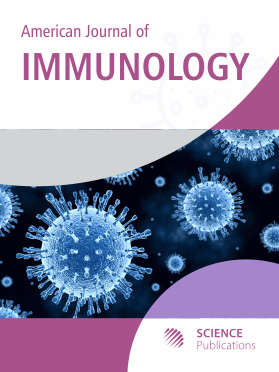Cancerous Immunoglobulins and CA215: Implications in Cancer Immunology
- 1 The University of British Columbia, Canada
Abstract
Immunoglobulins are typically expressed by B cells in our normal immune system. However, certain normal human tissues, such as hyperplastic epithelial cells, cells of the immunologically privileged sites and the majority of cancer cells, have also been found to be sites of immunoglobulin production. Current research is lacking in regards to the differential immunoglobulin expression, the underling mechanisms of action and the biological implications of these cancerous immunoglobulins in cancer immunology. This article reviews the etiology of atypical immunoglobulin expression in normal non-B cells and cancer cells, with emphasis on the exploration of the possible mechanisms of action and biological function of these atypical immunoglobulins, by means of specific biological probes. In contrast to immunoglobulins of B cell origins, atypical immunoglobulins were found to carry additional post-translational modifications, including a unique carbohydrateassociated epitope recognized by RP215 monoclonal antibody. This unique RP215-specific epitope enables us to differentiate between these two types of immunoglobulins. Atypical immunoglobulins expressed by cancer cells have been a common subject of interest in cancer immunology. Furthermore, the recent accumulation of experimental evidence has indicated that these atypical immunoglobulins are essential for the growth and proliferation of cancer cells under our normal immune environment. RP215 monoclonal antibody also reacts with many other cancer cell-expressed glycoproteins, known as CA215, on the cancer cell surface. Apoptosis of cultured cancer cells can be induced and growth inhibition of implanted tumors can be observed in nude mouse animal models. Therefore, humanized RP215 monoclonal antibody, which reacts mainly with surface bound CA215, may have the potential to be developed as an anti-cancer drug for the treatment of human cancers. A better understanding of cancer cell-expressed immunoglobulins not only improves our knowledge of cancer immunology, but also benefits cancer patients in the field of cancer monitoring and therapeutic treatments.
DOI: https://doi.org/10.3844/ajisp.2012.101.116

- 4,235 Views
- 2,836 Downloads
- 8 Citations
Download
Keywords
- RP215 Monoclonal Antibody
- CDC and ADCC Reactions
- Apoptosis
